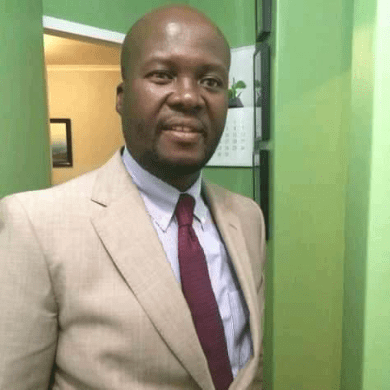South Africa has three major processes run in parallel—the Ad Hoc Parliamentary Committee into allegations involving Lieutenant General Nhlanhla Mkhwanazi, the Madlanga Commission on criminality and political interference in the justice system, and the Nkabinde Enquiry into the fitness of Andrew Chauke to serve as Director of Public Prosecutions. Each of them also represents a broader national pathology: the instinct to outsource politics to law.
This drift toward legalism reflects a society that no longer trusts its political class to govern, debate, or decide. Instead, South Africa has turned to judges, commissions, senior counsel and procedural choreography to resolve fundamentally political disputes. Commissions now function as political shock absorbers for public anger, diffusing scandal and postponing accountability. The country’s institutional energy is poured into hearings rather than solutions.
The judicialisation of politics means the displacement of the political into the legal or the turn to the courts and, in this case, commissions “to resolve an ever greater range of wrongs.” Sadly, political problems, including incompetence, corruption and institutional failure, as well as landlessness and endemic poverty, are not solved through political action but are instead handed over to legal processes.
ANC Secretary General, Fikile Mbalula, confirms this political inaction by arguing, “If we take away land from white people, this country will turn into rubble like Zimbabwe…” This abdication is cloaked in the language of ‘responsibility’ and ‘prudence,’ allowing political leaders to hide behind legal constraints rather than confront the political choices they are too afraid, or too compromised, to make.
Thus, commissions of inquiry close this gap as legal authority has rushed in to fill the void. But law is not designed to perform the work of politics. Commissions establish facts, but they cannot generate political will to act on those facts. Courts interpret rulesbut do not build legitimacy, craft public consensus or allocate resources democratically. This is something that the DA and its enclave of predominantly white organisations are yet to understand
Commissions are also highly judicialised and purposely dominated by legal technicalities. The current inquiries are likely to emulate this, with endless postponements granted so “implicated parties”can examine allegations. This judicial theatre creates an “aura of legitimacy” and fulfils our “innate sense of natural justice.” However, this incurs a heavy cost, turning what should be a quick, inquisitorial search for the truth into a lawyer-driven jamboreewhose primary concern and output is process rather than progress.
✅The Anatomy of a Paralysis: Legalism as a Political Dodge
Common political sense is the innate ability of those in power to perceive the obvious, act in the public’s clear interest and use the straightforward tools of administration and politics to solve problems. It is the courage to fire an incompetent official because their performance is demonstrably poor, not because a judicial enquiry unearths a technically admissible piece of evidence.
What we are witnessing today is the systematic replacement of this common sense with a paralysing lawfare. This is not the same as the rule of law, which concerns norms, fairness and predictability. Legalism, as scholar Judith Shklar defined it, is an ethical attitude that obsessively adheres to formal procedure as a substitute for moral and political clarity. It is a political dodge that allows leaders to outsource their core functions to judges and senior counsel.
This legalism operates through three primary tactics. First is the tactic of delay and obfuscation, using slow, complex processes to place crises in suspended animation. Second is the narrowing of the lens, where inquiries search only for legal proof of specific acts, missing the broader reality of institutional failure and incapacity. The third and most pernicious is the abdication of political responsibility, where the executive and legislature resign from their duties by handing every charged problem to a judge-led commission. The theatrics in the Parliamentary Committee expose MPs’ insatiable thirst for self-preservation rather than performing political oversight.
✅The High Cost of Spectacle Without Justice
The current inquiries are the latest entrants in a long and expensive lineage of investigation without enforcement. Funded entirely by public resources in a country facing widespread poverty and many other socio-economic crises, their costs are far from trivial.
The Marikana Commission (2012), which investigated the police killing of 34 miners, cost R153 million and spanned more than two years. Its final report, despite its legalistic detail, resulted in no individual facing legal consequences. The Zondo Commission, a monumental undertaking spanning 430 hearing days and costing nearly R1 billion, exposed a web of corruption. Yet, the translation of its damning findings into concrete, high-level prosecutions has been slow and incomplete, fostering public cynicism.
This is the recurring pattern where vast public investment, thorough investigation, and shocking disclosures yield few real consequences for offenders. The state uncovers the truth but seldom acts on it. This gap between discovery and justice undermines institutional trust and fosters a culture of impunity. Commissions risk becoming elaborate suggestion boxes—formally impressive but practically ineffective.
✅A Repeat Performance: The Madlanga, Nkabinde and Mkhwanazi Inquiries
We see the same legalistic playbook being deployed today, blurring the lines between genuine oversight and political theatre. First, Madlanga investigates systemic criminality with a scope so vast that its work could span a decade. In the meantime, what common-sense actions are being taken to clean up the SAPS and the entire law enforcement complex? The common-sense solution, such as a ruthless, performance-based administrative purge, is ignored in favour of a grand, legalistic inquest whose conclusions may well be shelved.
Second, the Nkabinde Enquiry is a classic case of legalism’s narrow lens. The ‘fitness’ of a senior official, Andrew Chauke, is being debated in a quasi-judicial theatre that will parse definitions of ‘fit and proper.’ This entirely sidesteps the common-sense question every South African is asking: Is the Gauteng NPA, under his leadership, effectively prosecuting corruption? The answer, visible to all, is a resounding no. But the process ignores this reality in favour of a narrow, legally winnable argument.
Even the Ad Hoc Committee on Mkhwanazi’s allegations, a political body, risks being consumed by this culture. Will its members have the political courage to act, or will they too retreat into calls for ‘more evidence’ and ‘legal opinions,’ fearful of making a definitive move?
✅From Inquiry to Accountability: A Call for Structural Reform
For commissions to shift from expensive spectacles into true instruments of accountability, structural reform is essential. The current divide between investigation and action creates a culture of impunity, where exposure alone becomes the goal. To close this gap, we must establish a mandatory government response systemthat legally requires the President to present a formal reply to commission reports in Parliament within a set deadline.
To ensure that commission reports do not become mere archival documents, we must insist on establishing enforceable prosecutorial links that require the NPA to account for its progress on criminal referrals publicly. Additionally, an independent parliamentary oversight committee with subpoena powers is crucial to guarantee that recommendations are implemented and do not simply gather dust on a shelf.
Without such binding measures, commissions will remain elaborate suggestion boxes, with their extensive reports serving as tombstones for political courage rather than plans for renewal.
This systemic failure forces a more profound, uncomfortable question: has rigid constitutionalism, for all its noble intentions,amputated politics itself? State institutions, bound by legal procedure and a fear of judicial review, have become paralysed, incapable of the decisive, common-sense action that should define political office. They meticulously build cases while people suffocate under crime, drugs and maladministration, treating every crisis as a legal puzzle rather than a political imperative.
✅Courage Over Procedure
The solution to South Africa’s governance crisis is not more processes but political courage. The executive and Parliament must stop using commissions as mandatory prerequisites for action that they are too timid to take themselves. Political common sense must be restored, where there is prima facie evidence of ethical compromise or administrative failure, the political decision to act must be immediate.
South Africa must cease its damaging habit of outsourcing core political judgment to legal procedure and an unaccountable judiciary. While Mexico’s radical experiment of electing judges by popular vote carries the distinct risk of politicisation and undue executive interference, it critically exposes the inertia of existing justice systems. This forces a necessary debate on how to make the administration of justice more democratically responsive without sacrificing its essential independence.
The judicialisation of politics must be addressed as a national priority, as South Africa stands at a critical stage where legal procedure has supplanted political courage. The current epidemic of commissions and inquiries represents not rigorous accountability but institutional paralysis, a sophisticated evasion of responsibility disguised as due process. We are witnessing the death of common sense and the birth of permanent crisis management.
Siya yi banga le economy!

